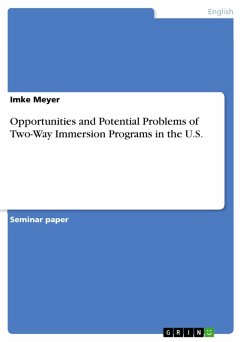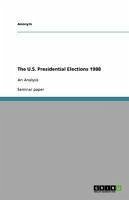Seminar paper from the year 2007 in the subject American Studies - Culture and Applied Geography, grade: 2,0, University of Potsdam (Amerikanistik/Anglistik), course: HS: Jewish American Life from World War I to the Present, language: English, abstract: Three quarters of the U.S. population believed at the end of the war that several hundred thousands of Jews had been exterminated in German concentration camps. As a matter of fact, nearly six million Jews perished in those camps. But why did hardly anyone care, or rather know, about the Jews' fate in Europe? Many U.S. American people faced severe problems in their own country - the aftermath of the Great Depression was still noticeable. Even between 1938 and 1939 an estimated number of eight to ten million people were unemployed in the USA. Consequently, a latent anti-Semitism existed in the U.S. society and was stirred up by people like W. D. Pelley as well as by Father C. E. Coughlin. But Pelley and Coughlin were not the only ones in opposition to the immigration of Jews; especially the State Department (responsible for immigration quotas) blocked foreign immigration due to bureaucratic inefficiency; the U.S. immigration quotas permanently decreased from 1939 to 1945 and in a way locked up Jews in Europe. Even the different groups of American Jews (e.g. Zionists versus Non-Zionists) were not able to establish a concentrated conglomerate in order to support European Jews.
Dieser Download kann aus rechtlichen Gründen nur mit Rechnungsadresse in A, B, BG, CY, CZ, D, DK, EW, E, FIN, F, GR, HR, H, IRL, I, LT, L, LR, M, NL, PL, P, R, S, SLO, SK ausgeliefert werden.









